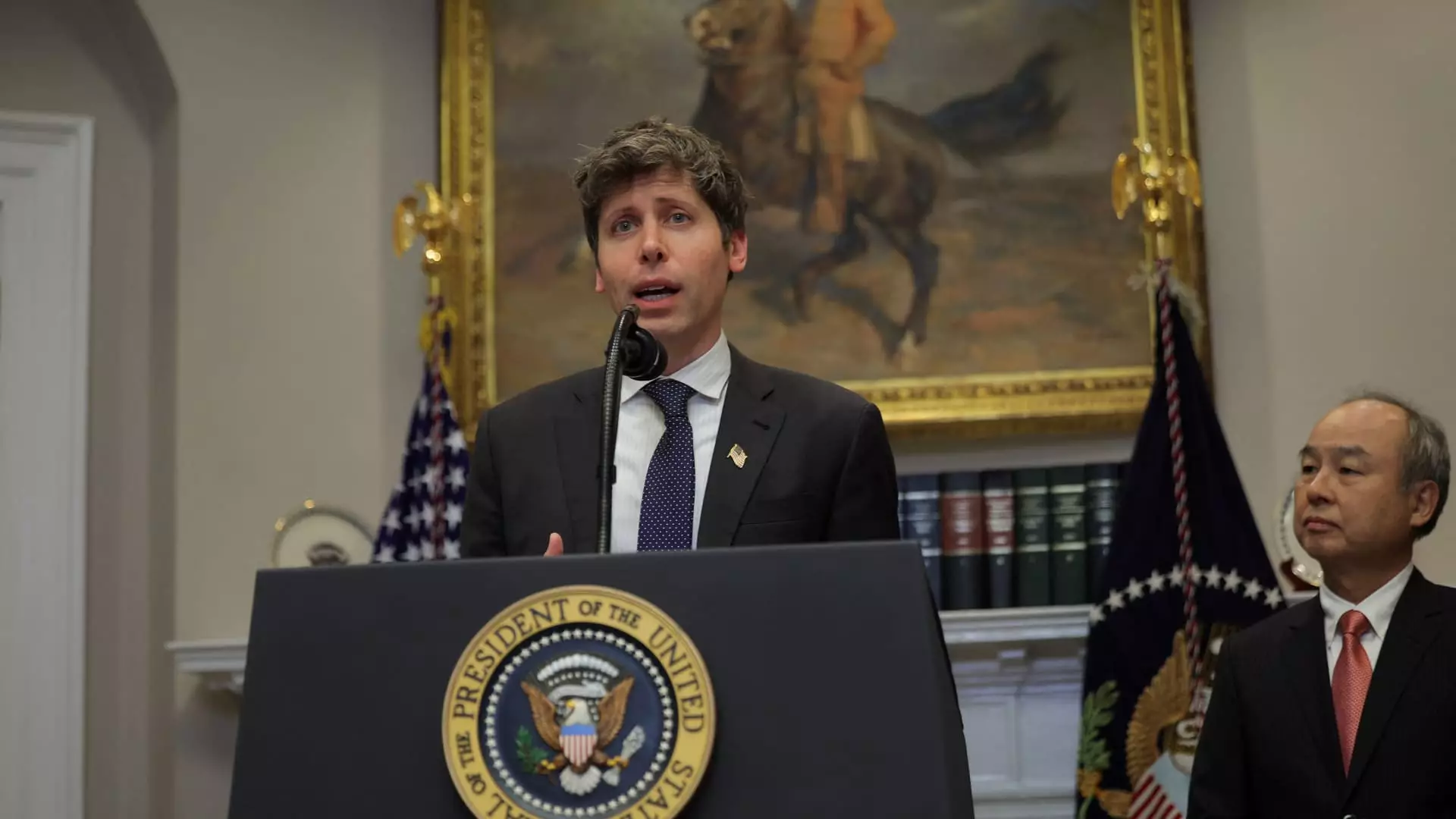OpenAI is currently navigating discussions to secure up to $40 billion in funding, a move that could potentially elevate its valuation to a staggering $340 billion. The strategic investors leading this initiative are none other than Masayoshi Son’s SoftBank, expected to contribute between $15 billion and $25 billion. This new round of funding would not just bolster OpenAI’s financial health but would also position SoftBank as its primary financial supporter, surpassing Microsoft’s previous investment levels. This transition represents a notable shift in the tech landscape, indicating SoftBank’s growing confidence in OpenAI’s potential to dominate the AI sector.
A portion of the capital raised is intended for the Stargate initiative, a collaboration between SoftBank, OpenAI, and Oracle. This initiative was spotlighted recently by President Donald Trump, with a clear objective to direct billions toward enhancing the U.S. AI infrastructure. The implications of such funding extend beyond immediate financial benefits; they signal a significant commitment to the future of artificial intelligence in the United States. With OpenAI’s last valuation at $157 billion, this new funding round underscores the emerging trends in generative AI and the company’s ambition to stay ahead in an increasingly fierce marketplace.
OpenAI’s rise has been meteoric, especially following the debut of its ChatGPT chatbot in late 2022, which sparked a widespread interest in generative AI capabilities. However, this growth has not been without challenges. The company is gearing up to face stiff competition from various tech giants, including Elon Musk’s xAI, alongside Microsoft, Google, Amazon, and Anthropic. Each of these players is eager to carve out their respective niches within the AI ecosystem, with their own unique offerings and innovations.
Moreover, competition from international entities, particularly Chinese startup DeepSeek, has emerged as a formidable force. DeepSeek recently achieved remarkable success in U.S. markets, with its application clinching top rankings in the Apple App Store. Reports indicate that DeepSeek’s model was trained at a far lower cost than those of its American rivals, raising questions about the sustainability of OpenAI’s competitive advantage.
In light of this robust competition, OpenAI CEO Sam Altman’s comments at a recent event highlighted the evolving landscape within the AI community. Altman referred to DeepSeek as a “clearly great model,” emphasizing the necessity for democratizing artificial intelligence. This perspective suggests a pivot towards collaboration and a shared vision for AI development that serves a broader audience, rather than being an exclusive domain for a select few.
As OpenAI moves forward, the implications of these funding discussions will be pivotal, not just for the company, but for the entire tech industry at large. The interplay of investment, competition, and innovation will shape the future trajectory of artificial intelligence and its applications across various sectors. The coming months will be critical as stakeholders in the AI community watch closely to see how OpenAI and other competitors respond to this rapidly changing environment.

